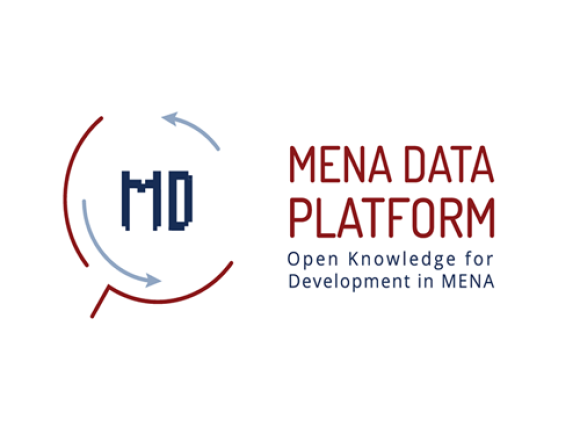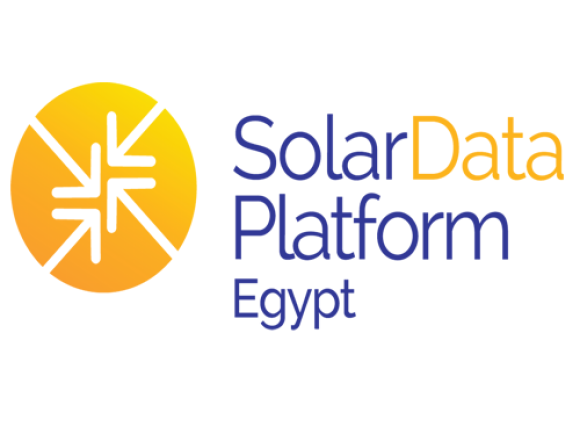Current and Previous Research
Current Research
The overarching objective of the research is to bring MENA’s perspectives to the global discourse on the digital economy, as it pertains to a) new forms of work and b) data for development and help reshape the global narrative to one that is cognizant of MENA’s context.
This research will explore the development, deployment and governance of responsible artificial intelligence and data in the Middle East and North African region through knowledge creation, networking, policy and regulatory support, and interdisciplinary collaboration and capacity development, in order to position the MENA as a leading region in responsible AI and data globally.
As the MENA hub of the A+ alliance, A2K4D’s activities will involve knowledge creation and awareness raising about novel technologies and data for development. A2K4D will harness its local, regional and global partnerships to bring together and grow a MENA wide feminist AI network of multidisciplinary stakeholders including institutions and individuals who are passionate about how applied AI can make positive change in the region. We will host a series of webinars to synergize efforts by social scientists, economists, data scientists, techies and domain experts who are grappling with unprecedented pace of technological change against a backdrop of growing multifaceted inequalities in MENA, especially with regards to gender, knowledge creation and awareness raising about novel technologies and data for development.
research to investigate one type of new work that women have been engaged in through the digital economy. Our research focuses on women selling a variety of products via platforms such as facebook, instagram and whatsapp. The focus is specifically on ‘informal’ digital entrepreneurship or social commerce—a new form of work characterized by run-from-home businesses led by women selling products via social media platforms or via messaging platforms such as Whatsapp.
Artificial Intelligence (AI) is now at the forefront of debates on the changing role of technology and its impact on socioeconomic and human development. Issues surrounding AI, inequality and developmental impacts can be related to earlier narratives around information and communication technologies (ICTs) and growth, inequality, and development. We are embarking on research in this field, stemming from our interest in research on technologies and how they relate to inclusion and development. Our work focuses on data as the major input for AI, which consequently leads to exploring issues on the ethics of AI and in the region.
Innovation realities in the Global South, including Egypt, differ considerably from those in the Global North. Prominent knowledge and innovation indices account for and thoroughly document innovation activities as they take place in the Global North. To better understand innovation activities in the Global South, an interdisciplinary investigation from multiple dimensions such as the social, economic, technical and legal is underway at A2K4D. The objective of A2K4D’s Alternative Innovation Measurement (AIM) Lab is to work towards complementary measurement tools and methods, devised grounds up, to reflect the unique realities of the diverse innovation and knowledge production settings in Egypt, laying foundations for scaling out the research to other African countries and elsewhere in the Global South. The Lab will engage students from across AUC’s different schools as well as stakeholders of the wider innovation community in Egypt at different phases of the research and outputs’ dissemination process. A2K4D’s AIM Lab is supported by AUC’s Centennial Lab Initiatives and the office of the Associate Provost for Research, Innovation and Creativity.
There is a need to better understand and account for the host of innovation activities that reflect the unique and diverse realities of countries of the Global South. Existing metrics of knowledge and innovation, including both composite indices and surveys, aggregate vast amounts of data and assess countries from both the Global North and South against a single yardstick. While this is useful for cross country comparisons, the particularities of innovation in the Global South mean, the region underperforms against its peers from the Global North. Informality prevails across economies in Africa and many countries in the Arab region and is a defining characteristic of innovation activities. Innovation as such takes place in forms that differ from those in the global North. A more complete assessment of these activities is necessary to better guide innovation policy makers to encourage and enable innovation for more sustainable development. Our research in the area of alternate metrics of knowledge and innovation spans both Egypt and other Arab and North African countries as well as Africa as a whole.
We look at how open and collaborative innovation can help scale the impacts of next-generation technologies to promote gender equality, youth employment, and other aspects of inclusion.
Together with our partners of the Access to Knowledge Global Academy, A2K4D and the Yale ISP are co-editing a book project analyzing mobile telephony within the Access to Knowledge framework. In recent years, the rapid and worldwide spread of mobile technologies has greatly expanded access to basic telephony and a wide range of Internet-based services. The book looks at opportunities and challenges that arise from this development, especially in terms of access and control. The focus on mobile telephony allows the different chapters to analyze a complex network of actors and their relationships with states, private companies, and citizens. Mobile phones or mobile technologies are the sites of investigation for current struggles over access to information, surveillance, control, subversion, privacy etc. and it explores mobile telephony as the source of opportunities and challenges, especially with respect to access and control. The book is edited collaboratively by Ramesh Subramanian, A2K Fellow at the Information Society Project at Yale University, and Stefanie Felsberger, Senior Researcher at A2K4D and brings together scholars, activists, and other subject-matter experts from across the globe.
The gig economy, also known as the platform economy, is of increasing relevance in today’s digital economy and is shaping new realities for work, inclusion, and development. The Fairwork project, based at the Oxford Internet Institute at Oxford University, UK, is a research project that is working to set and measure decent work standards in the platform economy. The objective of the Fairwork project is to raise awareness about the emerging platform or 'gig' economy around the world and especially in the Global South. Based on a set of principles defined by the Fairwork research team, platforms are given a score on issues such as pay, working conditions, etc. The research teams then engage with stakeholders in different countries to work together and encourage positive, more inclusive practices for gig economy workers. The platform economy is a central area of A2K4D research, with previous publications by Founding Director Nagla Rizk and A2K4D researchers on platforms such as Uber and on gendered perspectives of ride-sharing in Egypt. A2K4D will represent AUC and Egypt in the Fairwork project.
Previous Research
How can open collaborative innovation help businesses scale up and seize the new opportunities of a global knowledge economy? And which intellectual property and associated knowledge governance systems will best ensure that the social and economic benefits of innovation are shared inclusively across society as a whole? Our research focused on four priority themes: high technology hubs; informal sector innovation; indigenous and local entrepreneurs; and metrics, laws, and policies.
The project explored innovative technologies and approaches to improve data production, management, and usability in the MENA region from 2015-2017. The project was led by A2K4D, in partnership with the Center for Continuing Education at Birzeit University and AlAkhawayn University in Morocco.
In 2016, we were was selected to be the first node for The Open Data for Development (OD4D) in the Middle East and North Africa (MENA) Region. The node functioned as a coordinating body, providing support and initiative for the data ecosystem across the region.
In partnership with Friedrich-Ebert-Stiftung Egypt, we undertook a year-long project with the objective of encouraging Access to Information in the solar energy sector in Egypt through a series of events and case studies.
In partnership with Harvard University’s Berkman Klein Center for Internet and Society, we assessed the impact of the networked public sphere on civic engagement and democratic transitions in the Arab world. The project included Innova Tunisia and the Arab Policy Institute as our regional partners, both based in Tunisia.
We co-edited and contributed to a book, “Global Censorship and Access to Knowledge: Shifting Modes, Persisting Paradigms” in collaboration with Access to Knowledge Global Academy partners. The book includes chapters analyzing the different forms of censorship that are utilized today by private and public actors, with cases from the United States, Syria, Brazil, India, South Africa, Zimbabwe, Sri Lanka, North Korea, Burma, and Egypt.
We have contributed to several studies exploring copyright and creativity. Fieldwork exploring artistic expressions in Egypt and Tunisia has been undertaken with support from the Open AIR project.
Our team, led by Dr.Nagla Rizk, drafted the National Strategy for Free and Open Source Software (FOSS) in Egypt, as requested by the Ministry of Communication and Information Technology. The proposed vision of the FOSS strategy is to build a well-developed knowledge society those benefits from a healthy ecosystem of IT-producing and IT-using sectors in Egypt.
We were a member of a global research project on media concentration in 30 different countries in partnership with the Columbia Institute of Tele-information. The project aimed at a data-driven analysis of trends and their drivers for 12 major media industries in each country, for a period from 1984 to 2008.

